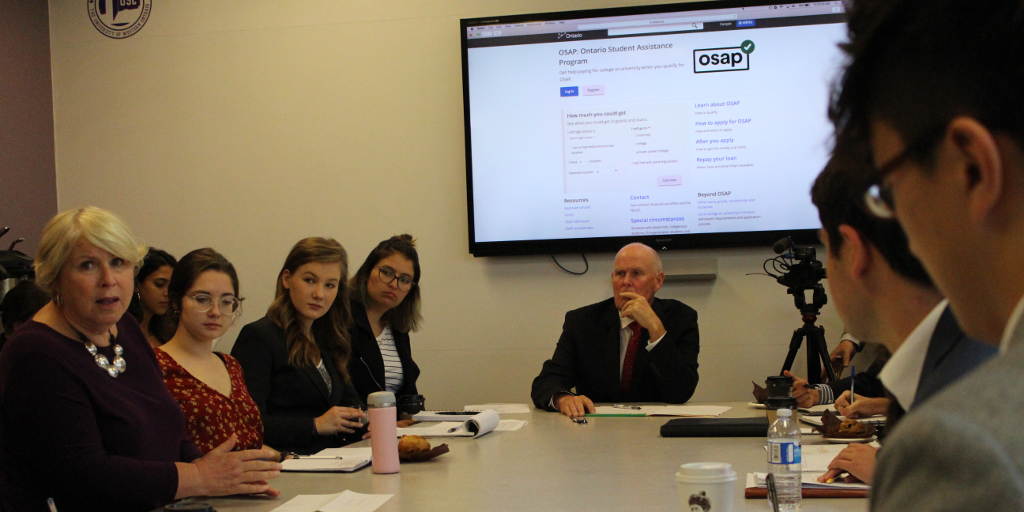London North Centre MPP hosts roundtable event to discuss the new changes to OSAP with students
 CREDIT: JEN DOEDE
CREDIT: JEN DOEDEMPP for London North Centre, Deb Matthews answered questions from students regarding the new changes to OSAP this school year.
MPP for London North Centre and Minister of Advanced Education and Skills Development, Deb Matthews, joined Fanshawe and Western students at a roundtable to discuss the new Ontario Student Assistance Program (OSAP) On Sept. 15.
According to the Ontario government press release regarding the roundtable event, more than onethird of college and university students this school year (over 210,000 students) are receiving free tuition, which includes more than 12,500 students in London alone. In addition, OSAP applications increased more than 10 per cent compared to the previous school year.
“Going to college or university is a wonderful opportunity for young Ontarians. That's why this government is committed to making it as easy and affordable as we possibly can for students, so that they can pursue their dreams, fulfil their potential and get the skills they'll need for the jobs of tomorrow,” Matthews said in the press release.
During the conference, Matthews showed the students how to use the new calculator function on the OSAP website, which gives students the opportunity to see how much they could receive regarding grants and loans. Matthews used three examples of students in different situations to show what loans and grants those individuals could receive.
In addition, Ontario is also partnering with eCampus Ontario to provide free textbooks to students. This initiative is similar to one that has been active in British Columbia for a few years now. According to the press release, the open textbook initiative in British Columbia has saved over $4 million since 2012. “eCampus Ontario has just recently launched. They've got 200 titles and other online education resources free of charge. [These titles are] available not just to students taking those courses, but anybody else who wants to access those textbooks,” Matthews said. “We're partnering with British Columbia to bring more textbooks [to students] and to update existing textbooks. We're really hoping that professors will take up this opportunity to use those online resources and that students will advocate that their professors and instructors do use those online education resources. This is the way of the future and I'm really hoping we are going to see more and more uptake of all those online education resources.”
The press release also states in the quick fact section that starting in 2018, the minimum annual salary a previous OSAP borrower needs to make before having to pay back their student loans will increase from $25,000 to $35,000.
After Matthews spoke to students about the new changes to OSAP this school year, she took questions and students voiced their concerns.
One student inquired how the provincial government can assist students who come from wealthy backgrounds, but their parents do not want to assist their child financially in regards to college.
Matthews explained that it remains a challenge to solve this issue and asked the students for advice.
“We have an expectation that students contribute to their post-secondary education, their parents contribute, and that the institution and government contributes. It's a shared responsibility. When parents choose not to, not because they don't have the means, but because they choose not to, it presents us with a bit of a conundrum because we do believe that it is a shared responsibility,” Matthews said while taking questions after the roundtable event.
Matthews added that there is flexibility for some of those very difficult situations.
Another topic of discussion raised by the Fanshawe Student Union (FSU) president, Morganna Sampson, at the roundtable was about international students who require financial assistance during their studies.
Matthews explained that these massive public policy changes are inspired by student advocacy and people need to understand that their voices can make a difference.�














